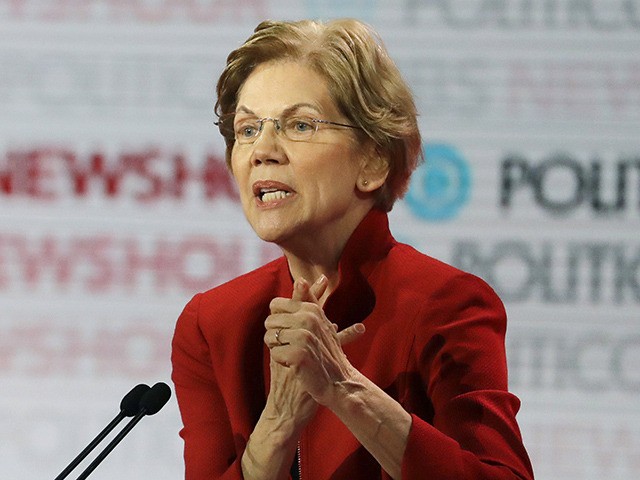Elizabeth Warren on Monday demanded a federal investigation into whether there may have been illegal trading in defense company stocks or commodities based on advance knowledge of the U.S. government’s killing of Iranian terrorist Qasem Soleimani.
Warren, the Democratic senator from Massachusetts and a contender for her party’s presidential nomination, sent a letter dated Monday to the chairmen of the Securities and Exchange Commission and the Commodities Futures Trading Commission. The letter relied on a Daily Beast story alleging that Trump had told guests at his Mar-a-Lago resort days before the January 3 strike to expect a “big” response to Iran “soon.”
“These private individuals … would have had the opportunity to obtain significant profits simply by being guests or members at President Trump’s private resort,” the letter claims.
Senator Chris Van Hollen, the Maryland Democratic and ranking member of the Senate subcommittee that oversees securities and investments, also signed the letter.
The letter does not allege any specifics but demands the federal agencies launch an investigation.
“We have no way of knowing which individuals received information from President Trump in advance of the attack, what precise information they received and when they received it, or whether they may have made any securities or commodities trades based on that information,” the senators wrote.
Federal law prohibits trading stocks based on material, nonpublic information in breach of a duty of confidentiality. Outsiders who are tipped off by insiders can face penalties if they knew both that the information was divulged in breach of a duty of confidentiality and that it was given to them with the expectation of repaying the tipper with some sort of personal benefit.
There has only been one case brought by the government for trading on executive branch information. The defendants in that case, United States v. Blaszczak, were acquitted.
Even if Mar-a-Lago guests were in possession of material, nonpublic information gained from the president, it is unlikely that disclosure by the president of the United States could amount to a breach of confidentiality or that it could be shown he expected to obtain a personal benefit from that disclosure. Warren and Van Hollen did not offer any explanation for how trading on such information, if it occured, would be a violation of federal securities laws.

COMMENTS
Please let us know if you're having issues with commenting.